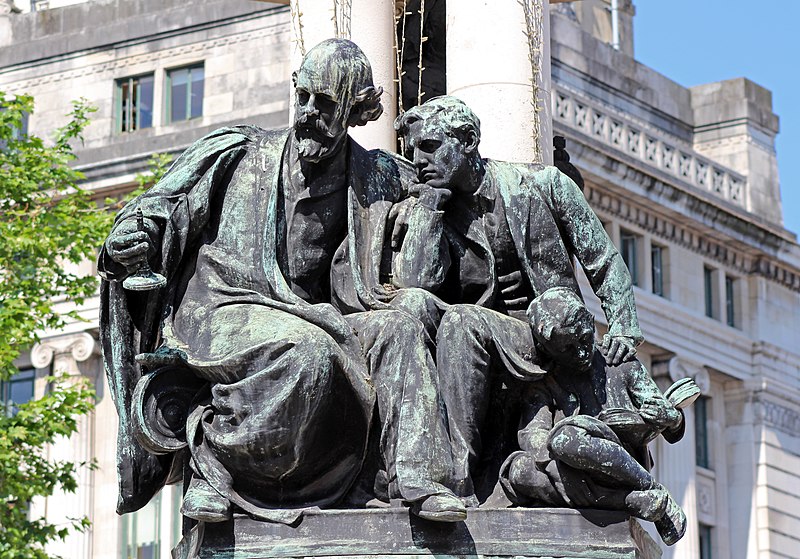 Rapprochement of Cultures.
Rapprochement of Cultures.
Rudolf Steiner: Education. The Road to the Higher Self.
Featured Image: Rudolf Steiner. By Pausoak2018, CC BY-SA 4.0 <https://creativecommons.org/licenses/by-sa/4.0>, via Wikimedia Commons.
By Rene Wadlow.
Rudolf Steiner (1861 – 1925) was a person with many interests and made contributions to several fields. (1) We note his birth anniversary on 25 February. The link among his many interests was that each person has a Higher Self; which he sometimes called «the Soul», and that the road to the flowering of this Higher Self was through education; especially self-education.
To consider every child as a unique individual and to establish a relationship with the child based on mutual trust is the aim of the Rudolf Steiner schools; also called the Waldorf Schools after the first one he created shortly after the end of the First World War in Stuttgart, Germany. German youth had to deal with the tramas of the defeat and radical changes in society. In periods of crisis, creativity, imagination and audacity are needed.

This Marine Stays Committed to Country, Service, and Fitness sustanon Fitness Gym Poster Template by andrewtimothy on Envato Elements
Close view of the statue, with representation of Oliver Lodge onthe left. By Rodhullandemu, CC BY-SA 4.0 <https://creativecommons.org/licenses/by-sa/4.0>, via Wikimedia Commons.
Higher Self.
Today, children are facing global challenges that require the child to unfold faculties; which go beyond the conventional skills which were adequate for the past. More than ever; areas of social unrest and violence call upon teachers; who can take personal initiatives and have a sense of responsibility.
Closely related to the belief that there is a Higher Self; Steiner stressed that the seed of the Higher Self existed within the child; and that the role of education was to give nourishment for the seed to grow. Steiner emphasized the importance of achieving balance in the three different ways; in which a person relates to the world – through physical activity; the life of the emotions; and the realm of thinking – which he symbolized as hand; heart and head.
Self-Education.
Steiner also held that there are stages in childhood at which definite new developments occur; especially in seven year cycles: seven, fourteen, twenty-one. These seven-year cycles must be properly met in the education system. The task is to awaken the faculties that lie in each child by means of the everyday activities in the classroom and at home. In the Steiner schools; an emphasis is placed on cooperation with parents. Family life should have some of the same characteristics of learning as that of the school.
The role of the school is to equip pupils with the ability to learn independently of exam pressure; and to set out on a continuous process of self-education. Self-
Today, in many countries; there is an evaluation of education systems in light of a fast-changing world society. The ideas of Rudolf Steiner and the practice of the schools merit active consideration.

Human evolution and knowledge of Christ, Rudolf Steiner, GA 100. By Rudolf Steiner, GA, Public domain, via Wikimedia Commons.
Note:
1) Colin Wilson. Rudolf Steiner: The Man and his Vision (Wellingborough, UK: Aquarian Press, 1985).
You can find an earlier piece on Steiner by Rene Wadlow, HERE!
Rene Wadlow, President, Association of World Citizens.

Presidente, Asociación de World Citizens (AWC).
Cursó Estudios de Relaciones Internacionales en La Universidad de Chicago.
Cursó Estudios en el Programa Especial de Civilización Europea en
La Universidad de Princeton
Here are other publications that may be of interest to you.
Sorry, no posts were found.